Maintaining Multipoint Locking Doors

Ensure the Longevity and Security of Your Doors
Multipoint locking doors are increasingly popular in homes and commercial properties due to their superior security features. With locks engaging at multiple points along the frame, these doors offer enhanced protection from break-ins and better sealing against external elements. However, like any mechanical system, they require regular maintenance to ensure optimal performance and longevity. Below is a thorough guide on how to maintain these complex yet valuable systems.
Understanding Multipoint Locking Systems
Before delving into maintenance tips, it’s essential to understand what a multipoint locking system entails. These systems typically feature three or more locking points, which simultaneously engage when the door handle is lifted or turned. The locking points often include the main latch, deadbolt, and additional hooks or bolts along the edge of the door.
Why Maintenance Matters
Multipoint locking systems are key to your door’s security and efficiency. Proper maintenance ensures:
- Consistent functionality: Prevent stiff mechanisms or misaligned locks that compromise security.
- Prolonged lifespan: Reduce wear and tear by addressing minor issues before they escalate.
- Enhanced energy efficiency: Maintain proper sealing to prevent drafts and energy loss.
Routine Maintenance Tips
1. Regular Cleaning
Dust and debris can accumulate inside the locking system, hindering smooth operation. To clean:
- Use a soft cloth to wipe down the exterior parts of the lock.
- For internal components, employ a dry brush or compressed air to remove dust.
- Avoid using water or harsh cleaning agents that could corrode metal components.
2. Lubrication
Proper lubrication is vital for keeping the locking mechanism smooth and functional.
- Apply a silicone-based lubricant or specialist lock lubricant to all moving parts, such as latches, hooks, and bolts.
- Avoid oil-based lubricants, as they can attract dirt and create a sticky residue.
- Conduct lubrication every six months or as needed, depending on use.
3. Inspect Alignment
Misalignment can cause difficulty in locking or closing the door. Check for:
- Uneven gaps between the door and frame when closed.
- Strain or resistance when engaging the locks.
If misalignment occurs:
- Adjust the strike plates on the frame using a screwdriver.
- Ensure the door hinges are tightened and properly aligned.
4. Check for Wear and Tear
Over time, components of the locking system may wear out. Inspect for:
- Cracks, rust, or deformities in the locking points.
- Loose screws or bolts in the assembly.
- Handle mechanisms that jiggle or feel unstable.
Replace damaged parts promptly to avoid compromising the entire system.
Advanced Maintenance Practices
1. Professional Inspection
While routine checks are beneficial, a professional locksmith or technician can perform a detailed inspection of your multipoint locking system. Annual inspections can:
- Identify hidden issues, such as internal wear or corrosion.
- Provide adjustments that require specialised tools or expertise.
2. Replacing Components
If your locking system shows signs of significant damage or is consistently malfunctioning, it may be time to replace individual components. This may include:
- Worn-out handles or levers.
- Damaged locks or strike plates.
- Hooks or bolts that no longer engage correctly.
Ensure replacements are compatible with your existing system to maintain effectiveness.
Best Practices for Long-Term Care
1. Avoid Excessive Force
Never force the door handle or locks if they resist movement. Doing so can cause damage to the internal components. Instead, investigate and resolve the issue.
2. Protect Against Moisture
Multipoint locking systems are susceptible to rust caused by moisture. Protect your locks by:
- Installing weatherstripping to minimise exposure to rain or humidity.
- Avoiding water-based cleaning methods.
- Applying anti-corrosion spray to exposed metal parts.
3. Use the Locks Regularly
Engage the locks frequently to ensure all components remain active and functional. Prolonged inactivity can lead to stiffness or mechanical failure.
Common Mistakes to Avoid
1. Neglecting Routine Checks
Skipping inspections can allow minor issues to worsen over time, leading to expensive repairs.
2. Using Incorrect Lubricants
Oil-based products can cause dirt buildup, reducing the efficiency of the locking mechanism.
3. Ignoring Signs of Damage
Failing to address visible wear or malfunction may compromise security and lead to system failure.
Conclusion
Multipoint locking doors provide unmatched security and efficiency, making them a valuable asset to your property. By implementing regular maintenance practices, such as cleaning, lubrication, alignment checks, and professional inspections, you can ensure the system operates smoothly for years to come. Avoid common mistakes and stay vigilant for signs of wear and tear—your diligence will pay off in improved safety, energy efficiency, and the longevity of your door system. Proper care is not just an investment in your security but also a guarantee of peace of mind.
Should you have any questions regarding the above, please do not hesitate to contact me.
The Importance of Genuine Branded Keys Over Cheap Copy Keys
A Critical Look at Quality, Security, and Longevity
Introduction
In a world where cost-effectiveness often trumps quality, manufacturers owning their proprietary keys have become an essential safeguard against the proliferation of cheap, inferior copy keys. Whether in the realm of machinery, vehicles, or electronics, the debate between authentic, manufacturer-made keys and inexpensive imitations is not merely a matter of cost—it’s a question of security, reliability, and long-term satisfaction for consumers.

Understanding Manufacturer Keys
Manufacturer keys, also known as original equipment keys, are designed and produced by the company responsible for the original product. These keys are tailored specifically to the mechanisms they operate, ensuring seamless functionality and the highest level of compatibility. From precision engineering to stringent quality checks, manufacturer keys symbolize reliability.
Tailored Precision
Unlike generic or copied keys, manufacturer keys are meticulously crafted to align perfectly with the intended locks or systems. This precise engineering reduces the risk of wear and tear, ensuring the longevity of both the key and the mechanism it operates. A cheap copy key, often made with inferior materials, can damage the lock over time, leading to costly repairs or replacements.
Quality Assurance
Manufacturers invest heavily in quality control processes to ensure their keys meet strict standards. Every manufacturer key is tested rigorously to guarantee durability and performance. Such measures are absent in the production of cheap copy keys, which are often made using substandard materials and processes, leading to frequent malfunctions.
The Risks of Cheap Copy Keys
While the allure of cheap copy keys lies in their lower price, the risks they pose can far outweigh the initial savings. These imitations often compromise the security, integrity, and longevity of the systems they are supposed to operate.
Security Concerns
Cheap copy keys often lack the sophisticated design and encryption features of manufacturer keys. This makes them prone to duplication or hacking, putting the security of homes, vehicles, or devices at risk. For example, in automotive applications, a cheap copy key without proper encryption can be exploited by thieves, leading to unauthorized access.
Mechanical Failures
Imitation keys are infamous for their poor fit and unreliable performance. A poorly designed copy key may jam or break inside the lock, causing inconvenience and potential damage to the mechanism. Such failures are particularly problematic in high-stakes scenarios, such as unlocking machinery or accessing secure areas.
Hidden Long-term Costs
While cheaper upfront, copy keys can lead to higher long-term expenses. Frequent replacements, repairs, and the potential need to replace entire locking systems can quickly escalate costs, making the cheap alternative far less economical in the long run.
Brand Integrity
Owning the proprietary design of keys allows manufacturers to uphold their brand’s reputation for quality and reliability. It ensures that their products continue to deliver the level of excellence consumers expect, without being undermined by subpar imitations.
Consumer Trust
When consumers have access to genuine keys, they are reassured of the product’s authenticity and reliability.
Automotive Industry
Car manufacturers often design advanced keys equipped with encryption technology to prevent theft. Cheap copy keys, lacking these features, pose a significant security risk. Furthermore, imitation keys may not be compatible with the vehicle’s locking system, leading to operational issues.
Conclusion
The importance of manufacturers owning their keys cannot be overstated. While cheap copy keys may seem like a convenient and cost-effective alternative, their drawbacks—from compromised security to long-term expenses—can have far-reaching consequences. Manufacturer keys, on the other hand, embody quality, reliability, and peace of mind for consumers.
As industries evolve and security threats become more sophisticated, the role of authentic, proprietary keys will only grow in significance. By prioritizing the use of manufacturer keys, both companies and consumers can contribute to a safer, more reliable, and efficient future. The choice between original and imitation is not simply a matter of cost—it is a matter of trust, security, and long-term value.

What You Should Do
When you order new locks from your locksmith, have a think about how many keys you are going to need before ordering takes place. That way, genuine branded keys can be provided with your new lock.
Lock changes for landlords
If you own a holiday let property, you should be well aware of the new fire regulations that suddenly hit last summer. I know many of you have been spending all your profits to ensure your properties are up to scratch for the coming season.
But what about long term lets?
The fire risk assessment to be carried out by holiday let owners states; ‘any property you pay to stay in. ‘If that doesn’t already mean long term lets, then it certainly will if the government of the day decides that the measures taking place with holiday lets are a success. After all, the more they make you spend, the more they get in tax.
If you own properties that you let out to tenants, then it might be an idea to get ahead of the curve. Lock changes for landlords; locks are changed all the time through abuse, lost keys, evicted tenants etc. What better time than now to make sure that the new locks going in are keyless escape versions. In the event of a fire, your tenants can get out quickly without having to find keys in a panic situation?
AC Locksmiths Norfolk can change your locks for you. Replacements are kite marked products. All insurances will be valid.
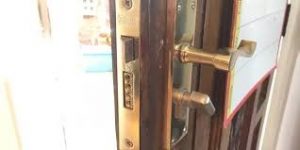
But while thumb turn (escape) locks are great for getting out easily, they can be a reduction in your security. There are tools that can go in through letterboxes and rotate the inner thumb turns, it is important to consider options to cancel this short fall. Letter catching cages are a great remedy to this, or mounting a post box outside your house, while disabling any door positioned letter plates is even better.
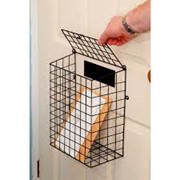
Changes are coming. I have spoken to several holiday let owners who have changed locks recently, only to have to change them again in light of the new legislation. It’s worth thinking about being ready for the inevitable.
Any questions regarding the above, please do not hesitate to contact me through any of my contact methods. https://www.ac-locksmiths-norfolk.co.uk/contact-us-here/
Thanks for reading.
Landlord lock law change:
I have just been reading through the Home Office Document: ‘A guide to making your small paying-guest-accommodation safe from fire.’ A guide to compliance with fire safety law for those responsible for safety in small paying-guest-accommodation’
You can find the document here
Note this says fire safety law and therefore is the legal requirement of all landlords, certainly for those with holiday lets. I would argue long term tenants are also paying guests as they have no right to remain when a landlord decides they want their property back for any reason.
Speaking to a letting agency recently, I have also discovered that it will be expected of all landlords to read the document and comply with all points mentioned. You won’t always get a risk assessor to check things for you. You, as the landlord are entirely responsible should a fire break out. It is quite heavy reading and most of it is obvious, but it is my job to point out relevant issues to my own line of work.
In section 6, there is this statement:
‘Exit doors, such as the front or back door, should always be easy to unlock and must not need a key to unlock them from the inside. A simple latch or thumb turn is usually good enough. However, you may need to consider whether all guests are able to open these doors. A simple single action turn handle or lever will often be more appropriate.’
This means you must have a lock with a thumb turn on the inside. Something like this:
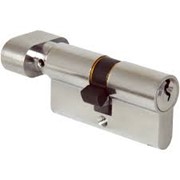
On all upvc type doors, this is simply a matter of changing the cylinder. On doors with mortice (often called ‘Chubb’ type) locks, you will need to change the lock, handles and purchase a cylinder. And while thumb turns are great for fire escapes, they do pose a security risk as it is possible with certain tools to go in through the letterbox and rotate the thumb turn to gain access. Therefore any locks with thumb turns on a door with a letter plate, should also purchase a letter plate guard to alleviate this problem.
The point is repeated on the checklist included in the document: ‘Are frequent checks carried out to ensure exit routes are kept clear and fire exits remain easily openable?’
That is your prompt to make sure no one can lock a door, remove the key and then be unable to get out while panicking in a fire.
October the 1st is the current date for this to become law over advice.
If you have your work done through AC Locksmiths Norfolk, you can expect to pay £55 for a kite marked thumb turn euro cylinder. These can be brass/gold, chrome, polished chrome, dual finish, black or white. An average of £50 to replace your mortice lock with a mortice euro lock case. Handles start at £25 but average at £45. More ornate handles such as wrought iron up to £200. In all cases, a labour fee of £75 is payable. (All prices correct at time of writing, but please get binding quote at measuring stage). In almost all instances, a measuring visit will be required. This is free to all properties within a half hour drive of Holt, Norfolk.
Should you have any questions regarding the above information, please do not hesitate to contact me; 07846643176
Thanks for reading.
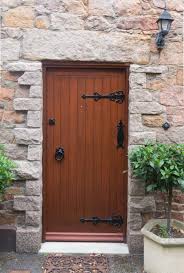
New laws for holiday lets; Very soon, all holiday let properties are going to be required by law to be keyless exit in case of emergencies. For properties with UPVC or similar doors where the handle needs to be pushed up before locking, the lock changes are straight forward and the existing cylinder just needs to be changed for one that has a thumb turn on the inside rather than a key.
But if you have a wooden door with a mortice (Chubb type) lock, then you will need a complete conversion kit consisting of replacement lock case, thumb turn cylinder and Euro cylinder handles. Most of this is straight forward, but sourcing handles to match your existing ones can be a drain.
If you do not get this work done and your tenants have an emergency, there will be no cover from your insurance should the worst happen due to them not being able to escape.
Here at AC Locksmiths Norfolk, we are happy to work around your changeover days and with your management company to get the locks changed seamlessly without hassle for you or your customers.
Should you require any more information about the new laws for holiday lets – or anything else, please contact me for an informal chat.
It is well known that business properties, especially where the public has access, should have secure fire exit doors, which means that all locked doors should be able to be opened from the inside without a key.
But many people renting out properties for holidays do not realise that these fire exits should have easy escape capabilities. The logic behind this is that if the lock is key operated on the inside, the customers may well lock the door, put the key somewhere safe, and then should the worst happen and a fire break out, in their panic and being away from home, they could well forget where they have put the key and be caught in a tragic accident.
So if your wooden door has a nightlatch (often called a ‘Yale’ lock), and that lock has a British Standard Kite mark, you are fine.
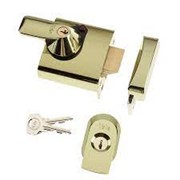
If your wooden door has a mortice (often called a ‘Chubb’ lock), with key operation on both sides, there is a conversion that can be done to use a Euro Cylinder that has a thumb turn on the inside. This means changing the lock and handles but can use the existing space with minimal visible change.
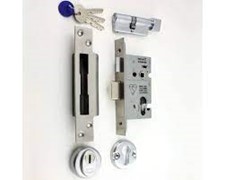
If your door is UPVC or has any mechanism where the handles must be lifted before locking, it is a simple matter of swapping the existing Euro Cylinder for one with a thumb turn on the inside.
This is a key both sides Euro Cylinder: 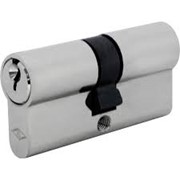
And this is a standard thumb turn Euro Cylinder: 
There is a slight worry with installing these fire escape systems, though and that is I have a tool that can go in through letter boxes and turn the thumb turn allowing me access to the property. We have two solutions. Firstly, certain thumb turns on the very best cylinders are designed to be difficult for tools to turn. They might require a push while turning or just plain difficult for the tool to purchase.
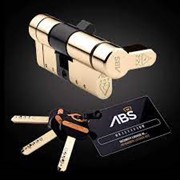
Alternatively, you can buy specially designed sloped guards for your letterbox (although even these can be bypassed with ever more clever locksmith tools).
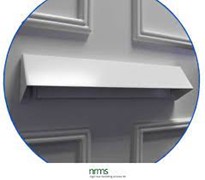
Or better yet a letter catching cage on the back of your door will stop all tools that I know of at time of writing.

If you own or run holiday lets, you might find your public liability insurance does not pay out if you have not taken the correct measures to ensure the safety of your guests.
I am noticing a lot of village halls are also suddenly finding out from fire inspections that they are not up to scratch. Please check the regulations specific to you if you run any property that is not a private home.
Click here for Government guidance on fire doors/fire safety
Should you have any questions regarding the above information, please do not hesitate to contact me.
Thanks for reading.
Property Management for your second home

Do you have a second home in Norfolk? Are you thinking of buying a second home in Norfolk? A second home is a fantastic endeavour and isn’t it lovely to be able to get away from it all for a few days retreat in our lovely county? Let us help you with your property management for your second home.
In all the time I have been a locksmith, I have been meeting people with second homes. They seem to spend as much time running backwards and forwards dealing with this issue or that, meeting traders and contractors at times that only seem to be when annoyingly inconvenient. I get asked to fit a lock upgrade at very specific times because the client is fitting in so many other people in one go and they absolutely must dash back that evening for work. Or, the time that was supposed to be relaxing has suddenly turned into a frenzy of jobs that need doing so that hopefully next time the relaxing can happen.
What can we offer?
Imagine if all that hassle could be taken away from you; you arrive at your second home, find it nice and clean, with fresh sheets, food stocked and the heating on. Someone close by on call to check the alarm that is going off for no reason, or simply just check on the property after a storm. Someone who knew reputable traders so you don’t have to take a chance in an area you don’t know, someone who might be able to get things done a little more quickly. What if you could be guaranteed that bit more relaxation when you get to your second home – which is probably a large part of why you wanted it in the first place?
There are plenty of second home management companies out there. But many just add it to holiday letting businesses. I want to concentrate purely on second homes. Whether you want me to work for you on a pay as you go service, or have the peace of mind of an always on hand contract, I can make sure your second home is a hassle free endeavour.
You can tailor your service to any or all of the following:
- Contact with respected local traders for any works needed
- Manage those traders, meeting them on site
- Collect your shopping for you and stock up your kitchen using click and collect service or meeting a delivery
- Your property cleaned thoroughly on departure and spruced before arrival in cases of long absences.
- Sheets laundered and beds remade while you are gone.
- Unobtrusive cleaning at times to suit you during extended stays
- Property checks while you are away, especially at times of adverse weather.
- Utilities turned off while you are away to save on bills and turned back on before you return, with things like heating being set so property is warm when you arrive in winter.
- On call service for when the unexpected happens.
- Secure keeping of keys and recorded issuing of keys to traders and contractors who may need them.
- Meet and greet for those traders and contractors to ensure strict instructions
- A trusted to person to stay if necessary while works are carried out.
- Management of gardening
- And anything else you might think of
Remember, because I wish to work exclusively with second homes, I am not going to be over burdened with holiday lets that are given over to short bursts of cleaning between customers. A second home is still a home and I intend to look after your home like my own.
If you want to take the hassle out of owning a second home, I am here help. Meet me at your home at a time that is convenient to you. We can discuss your requirements with no obligations. From there, I will provide a quote and the rest will be up to you.
Proof of Public liability insurance and Police checks can be provided upon request. Please see our Customer Testimonials too.













